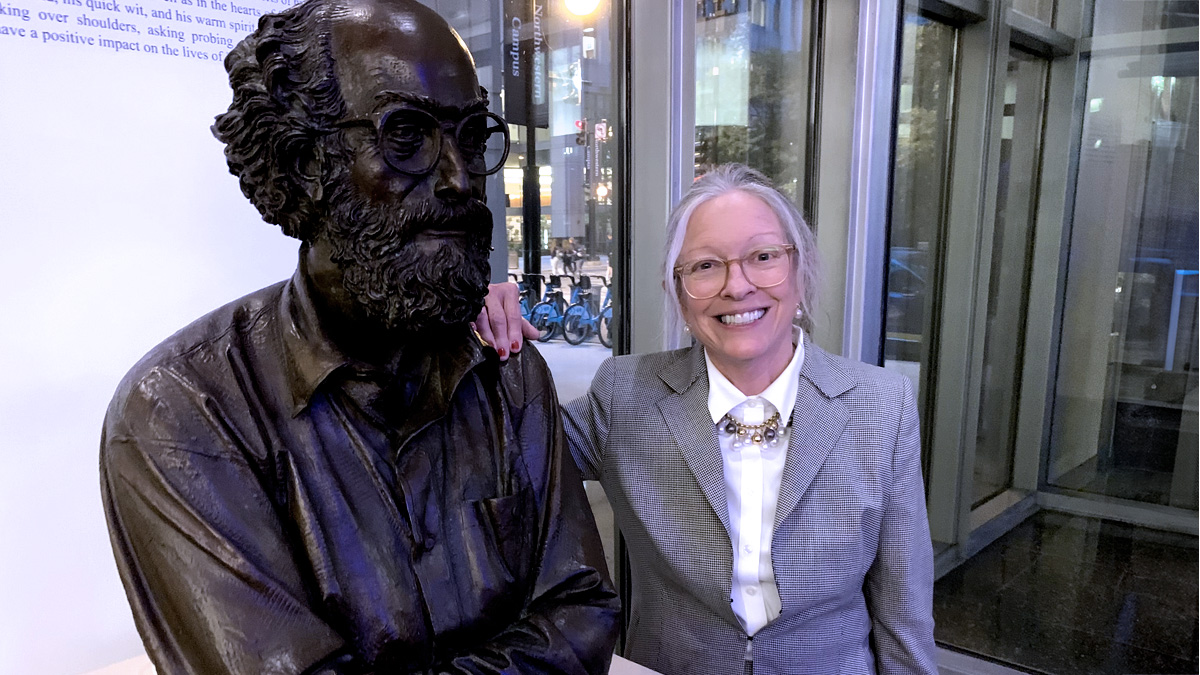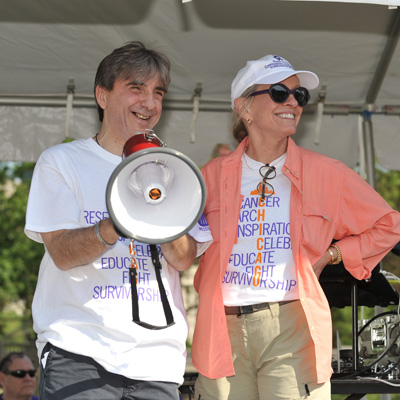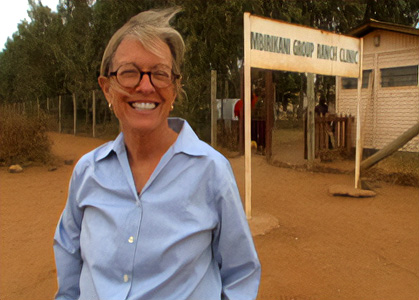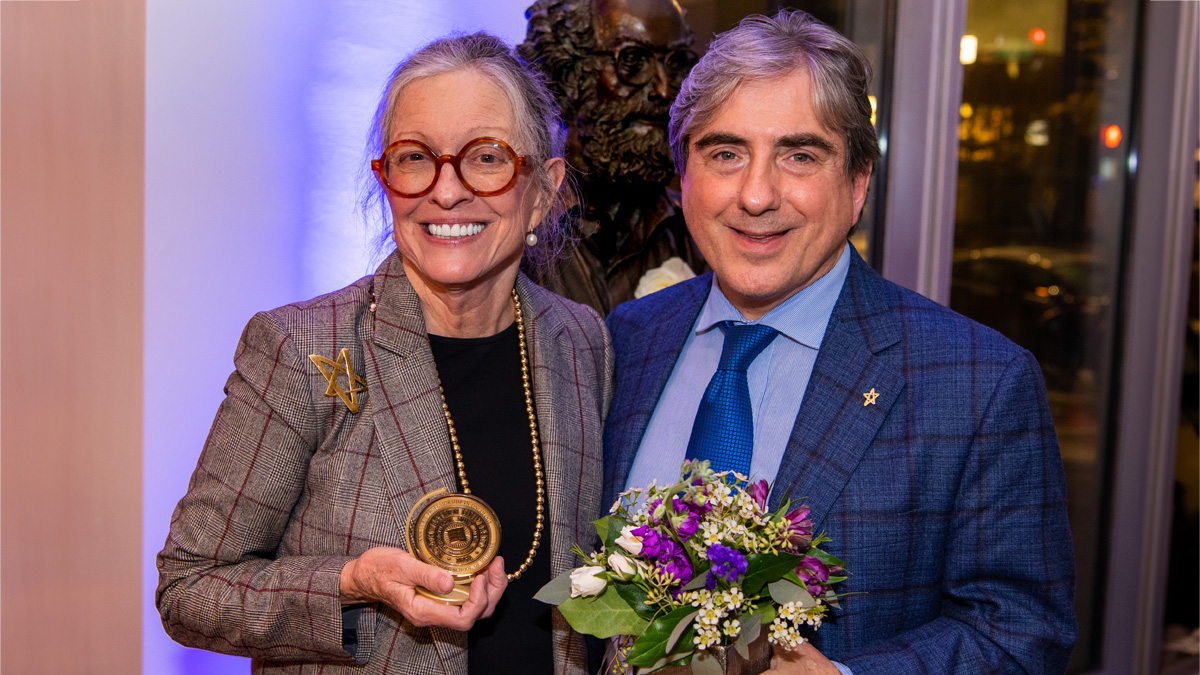Remembering Ann Lurie

Ann Lurie, a visionary philanthropist who transformed the lives of countless people, passed away on June 24, 2024. She was 79. The depth and breadth of Lurie Cancer Center’s high-impact research and cancer treatment are part of her extraordinary legacy.
Her connection to Northwestern began in 1987, when her husband, Robert H. Lurie, was diagnosed with advanced colon cancer. In appreciation of the exceptional care he received, the Luries decided to endow the cancer center to provide the best care to patients and their families — giving it the resources needed to invest in faculty, research, and educating the next generation of scientists and clinicians.
 Following the dedication of the Robert H. Lurie Comprehensive Cancer Center of Northwestern University in 1991, Ann Lurie continued to be a steadfast supporter of the cancer center, where she chaired the Friends of Lurie Cancer Center Advisory Board, raising essential funds to fuel innovation and discovery. Recognized for being personally involved in the causes she supported, she was a passionate mentor and ally.
Following the dedication of the Robert H. Lurie Comprehensive Cancer Center of Northwestern University in 1991, Ann Lurie continued to be a steadfast supporter of the cancer center, where she chaired the Friends of Lurie Cancer Center Advisory Board, raising essential funds to fuel innovation and discovery. Recognized for being personally involved in the causes she supported, she was a passionate mentor and ally.
“Humanity has lost one of the greatest philanthropists of all time. Ann Lurie was a remarkable human being who was dedicated to reducing human suffering from cancer and other diseases across the globe,” said Leonidas Platanias, MD, PhD, director of the Lurie Cancer Center and the Jesse, Sara, Andrew, Abigail, Benjamin and Elizabeth Lurie Professor of Oncology. “Because of her advocacy and generosity many lives have been saved from cancer and the impact will be felt for years to come.”
Born and raised in Florida, Lurie earned a nursing degree from the University of Florida. In 1973, she moved to Chicago, where she worked as a pediatric intensive care nurse at Children’s Memorial Hospital.
 Lurie was a Northwestern University life trustee who had a tremendous impact on the Chicago Medical Campus. She said that her experiences as a nurse and as a parent of six children influenced her to make a $100 million gift to help build the Ann & Robert H. Lurie Children's Hospital of Chicago. In addition,she funded a professorship in cancer cell biology at Lurie Children’s and established professorships in breast cancer research and oncology at Northwestern's Feinberg School of Medicine. She also funded the Robert H. Lurie Medical Research Center, a 12-story building with auditoriums and laboratories to support over 1,000 researchers, technicians, postdoctoral students, and lab assistants.
Lurie was a Northwestern University life trustee who had a tremendous impact on the Chicago Medical Campus. She said that her experiences as a nurse and as a parent of six children influenced her to make a $100 million gift to help build the Ann & Robert H. Lurie Children's Hospital of Chicago. In addition,she funded a professorship in cancer cell biology at Lurie Children’s and established professorships in breast cancer research and oncology at Northwestern's Feinberg School of Medicine. She also funded the Robert H. Lurie Medical Research Center, a 12-story building with auditoriums and laboratories to support over 1,000 researchers, technicians, postdoctoral students, and lab assistants.
Lurie’s philanthropy extended across Chicago. She endowed the Lurie Garden in Millennium Park, funded the PAWS Lurie Family Spay/Neuter Clinic, the green roof atop the Access Living Headquarters, and Gilda’s Club Chicago. Globally, she founded and served as president of the Africa Infectious Disease Village Clinics, Inc., a registered U.S. public charity focused on providing free quality medical care and public health services to rural communities in southeastern Kenya until its closing in late 2012. She was also involved in other health, education and environmental initiatives in other countries in Africa as well as in China and Nepal.

Lurie joined the Board of Directors of the Foundation for the National Institutes of Health in 2009, where she established the Lurie Prize, an annual $100,000 award that recognizes the outstanding achievements of a promising biomedical researcher. Inducted into the American Academy of Arts and Sciences in 2015, she was a recipient of the Grant Goodrich Achievement Award from the Northwestern Alumni Association (2002), the Jimmy and Rosalyn Carter Award for Humanitarian Contributions to the Health of Humankind from the National Foundation for Infectious Diseases (2009) and the Anti-Defamation League’s Lifetime of Achievement Award (2009).
We extend our deepest condolences to her husband, Mark Muheim, her six children, 16 grandchildren and Muheim’s two sons.
